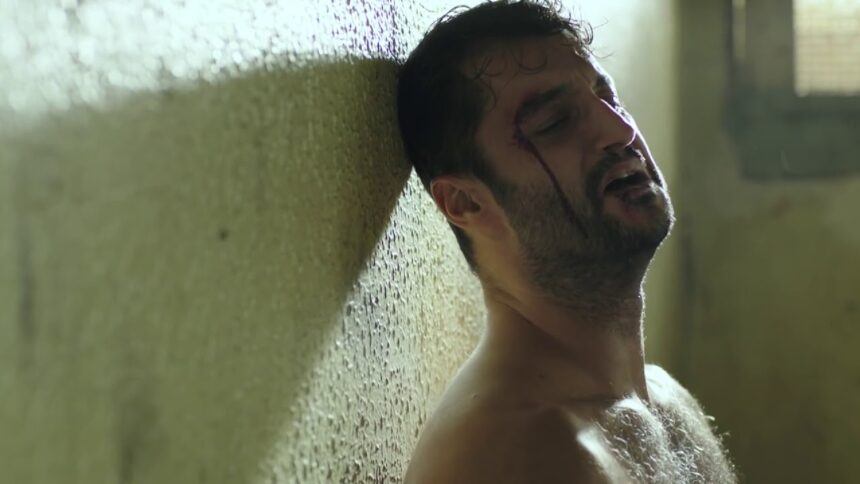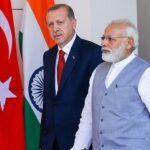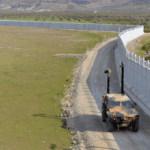Summary by News About Turkey (NAT):
The 80th session of the United Nations Committee Against Torture convened in Geneva from July 8-26. The significance of the 80th session lies in the main review topic being Turkey during the meetings on July 17-18. The Committee reviewed Turkey’s 5th Periodic Review Report, along with questions posed by the Committee and Turkey’s periodic report. Additionally, reports from civil society organizations, non-governmental organizations, and national human rights institutions like the Turkish Human Rights and Equality Institution were part of the agenda.
The questions from the Committee and Turkey’s official responses follow a sequential flow. In other words, the issue the Committee asks for clarification on in one paragraph is somehow explained in the corresponding paragraph of Turkey’s official report. However, when considering the alternative reports from all civil society organizations, the gaps in international law and institutions widen, revealing their own alternative reality. One of the issues from this alternative reality, which remains unanswered and silent by the state’s institutions, is the practical vicious circles in the investigation of the crime of torture.
Article 94 of the Turkish Penal Code regulates the crime of torture and torment. According to this, torture is a specific type of crime that can only be committed by a public official. This means that acts causing physical or mental pain or humiliation to a person, incompatible with human dignity, must be carried out by a public official. With the amendment to the law in 2003, administrative permission is no longer required for the investigation of public officials involved in torture. Since there is no statute of limitations for the crime of torture, an important threshold has been crossed in combating impunity for torture. But is this threshold really being crossed, or is there still a darkness hidden in the gap between implementation and norm?
Alternative reports sent to international human rights organizations are significant alternative readings, describing the gaps of states and international institutions and reversing the rhetoric into which they can easily fall. The Alternative Shadow Report of the Human Rights Foundation of Turkey on Turkey’s report raises an important question in this regard: Yes, administrative permission is not required for the investigation of the crime of torture in Turkey, but in practice, Article 94 of the TPC is not always applied in cases of torture. Instead, TPC Article 86 concerning intentional injury and TPC Article 256 concerning excessive use of force by public officials with authority to use force are applied. Since the investigation permission for these crimes is operated under the Law on the Trial of Civil Servants and Other Public Officials, another impunity shield is effectively built into the practice and official data regarding the crime of torture.
The Human Rights Foundation of Turkey’s alternative report clarifies this duality with the example of the Saturday Mothers: Despite the Constitutional Court’s violation ruling, the Saturday Mothers are still deprived of their most basic protest rights. Although the Constitutional Court’s decision resulted in a violation in terms of the right to assembly and demonstration, it did not consider systematic detention and police intervention against people exercising this right as mistreatment, leading to an incomplete violation decision that is still not implemented. The Human Rights Foundation of Turkey reminds that the Saturday Mothers filed thirty-one criminal complaints against the police chiefs and officers who detained them. Following these complaints, prosecutors who initiated investigations sent twenty-six investigation files to the Istanbul Governor’s Office requesting administrative permission, but the governor denied permission for twenty-five of these requests, effectively shielding law enforcement officers.
The issue that the Committee Against Torture opened a separate topic on was the investigations into deaths in Southeastern Anatolia, including Cizre, during curfews after 2015. Alongside whether these deaths involved violations of the right to life, there is also an aspect related to torture and ill-treatment, as well as the obligation for effective investigation. The Committee asks questions about enforced disappearances and torture allegations, but the government’s responses explain that all the investigations resulted in decisions of non-prosecution after detailing Turkey’s multiple internal and external threats.
The government states that during this period, fifteen investigations were conducted by the Cizre Chief Public Prosecutor’s Office regarding allegations of torture and enforced disappearances, but none of the complainants alleged torture, no such findings were observed in the medical reports of detainees, and all complainants made identical allegations without evidence through a template petition from an NGO. For these reasons, the Cizre Chief Public Prosecutor’s Office issued decisions of non-prosecution for each investigation.
Meanwhile, the Constitutional Court published several decisions on July 8 regarding deaths during curfews. The decisions mostly concerned violations of the procedural aspect of the right to life due to ineffective investigations into the deaths of people killed during conflicts during curfews. In one decision, the claim by relatives of a person killed during the clashes in Yüksekova that the state was at fault was rejected, stating that the person’s death occurred within the execution of a legal provision and was due to their own fault. The Constitutional Court’s violation decision was issued regarding the procedural aspect of the right to life due to deficiencies in the investigation related to identifying the officials involved in this death.
Another decision related to a similar period death in Nusaybin concerned the state’s fault. Here, since the last investigation action was taken in 2017, and the applicants could have identified the ineffectiveness of the investigation since 2017 but took no steps until later filing an individual application, the decision was issued on the grounds of time-barred and did not address the merits of the case.
In two other decisions published the same day, families living in Nusaybin and Sur claimed that they were forced to leave their homes due to curfews and conflicts, suffering economic and moral damage. However, local courts stated that there was no bodily, moral, or physical harm, hence no responsibility of the administration. The Constitutional Court characterized the local court’s determination as an obvious and manifest error of discretion and issued a violation decision regarding the right to a fair trial in terms of the right to a fair hearing. In summary, it can be said that the Constitutional Court recognized being forced to leave one’s home due to curfews and conflict as a protectable value.
All these processes and files are connected in some way. Of course, the normative and legal issue in the Constitutional Court examples is not a torture allegation, but these decisions are also linked to the regional review by the UN Committee asking questions about the period of curfews.
In Gökçer Tahincioğlu’s novel “Mühür,” the story of Baran, who is tortured, remains hidden. Here, torture is described as a “darkness that does not listen to anyone, locked together, destroying those within its circle.” Lawyer Saim, who tries to fight against torture, says, “More than torture is done to these children. In prison, they do not even take those children to the doctor until the marks of beating disappear.” Considering the government report explaining the lack of investigation into torture allegations due to no such findings in the medical reports, Baran inevitably comes to mind.
The UN Committee Against Torture convened and ended. Its next session will be on October 28, where other countries’ stories will be heard. One handicap of international law is its language woven with bureaucracy, during which lives are trapped in another darkness.
All these intertwined, somehow connected stories of torture, enforced disappearances, or what happens in dark streets during political turbulence actually belong more to people than states.
During the dictatorships in Argentina and Chile, a kind of impunity norm called “self-amnesty” was introduced for those responsible for enforced disappearances and torture. Following this, discussions were held, led by the Mothers and Grandmothers of Plaza de Mayo in Argentina, on how to circumvent this norm and develop strategic litigation methods. What emerged as the right to truth today was invented to infiltrate the system through the legal norm that prevented these people from finding their children.
Like every invention, people’s worlds were hidden before it; like every invention, it still awaits somewhere on hold to remain for the future. To be found.
[1] Gülseren Yoleri, App. No: 2020/7092, 29/3/2023.
[2] Alaaddin Babat and Others.
[3] Ahmet Dal and Others.
[4] Hatip Oyman and Others and Yılmaz Şenol Application.
By: Isil Kurnaz – graduated with honors from Bilkent University Faculty of Law. She obtained a master’s degree in International Human Rights Law from Lund University with the Sweden Institute Human Rights Scholarship in memory of Anna Lindh, awarded by the Swedish government. She won the Halit Çelenk Law Award in 2018 for her thesis on “Collective Social Rights in Constitutions.” She is currently working as a doctoral researcher with a scholarship at the Human Rights Institute of Sant’Anna Scuola Universitaria Superiore Pisa in Italy. She also contributes regularly to the Birikim magazine.
*This article was originally published in Birikim Magazine and translated to English by Politurco.
Source: politurco.com



